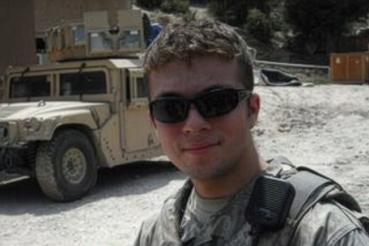In 2014, the Centers for Disease Control estimated that one in 68 children had been identified as having an autism spectrum disorder (ASD) — a significant increase from just two years earlier, when that number was one in 88.
These numbers are alarming, especially for parents.
While public schools and other state-funded educational programs provide services for children affected by ASD, that support practically vanishes once they reach their 22nd birthdays. This leaves a growing number of men and women and their families to fend for themselves in uncharted territory.
Uncertain futures, untapped potential
"These young adults face an uncertain future due to having far fewer resources than needed. They have difficulty navigating social interactions, with deficits in executive functioning, expressing themselves both verbally and nonverbally and controlling stereotypic behaviors," says Louis Kraus, MD, chief of child and adolescent psychiatry at Rush University Medical Center.
And without an understanding of their needs and a comprehensive plan to address the education, employment, housing and health care needs of this population, autistic adults are especially vulnerable to joblessness, homelessness and government dependency, according to advocates from the organization Advancing Futures for Adults With Autism. This, they say, could prove especially costly for our nation's economy.
"The fact is that many autistic people, especially those considered 'high functioning,' are employable and capable of living more independent lives," Kraus says. "But this group as a whole has an especially difficult time dealing with change in their environment. As they graduate from high school, their parents don't necessarily know what they are capable of or what to do next. Transition for them is often a daunting task."
Easing the transition into adulthood
With the right supports in place, these men and women can continue their education, have jobs, and learn and develop throughout their lives, according to Kraus. "But right now, there's a void in terms of support, with Illinois lagging behind 48 other states in terms of services."
Kraus and his colleagues hope to start changing that. That's why, in 2013, they opened Chicago's first center for autism spectrum disorders, where patients — children, teens and young adults — can benefit from assessment and long-term coordinated care.
The center provides comprehensive assessments and treatment interventions, social skill and vocational assessments and referrals, and even career counseling.
"Our hope is to provide a continuum of care and ease patients into adulthood and allow them to be as productive and satisfied as possible," says Kraus.
At the center, high school graduates and their families can continue to come to the same location they've come to know over the years and work with the same staff. "This familiarity is especially important for people with ASD who often have difficulty with new situations."
And the skills they'll develop at the center will help prepare many high-functioning men and women with ASD to continue their education and/or enter the workforce by further developing social and communication skills and finding jobs that suit their skill set.




